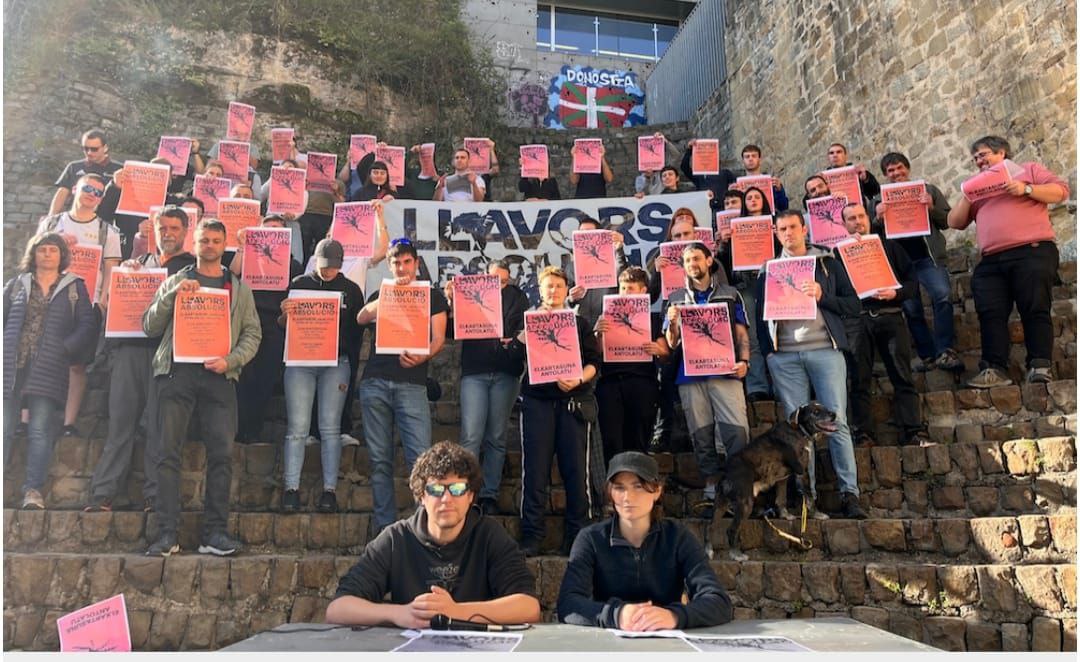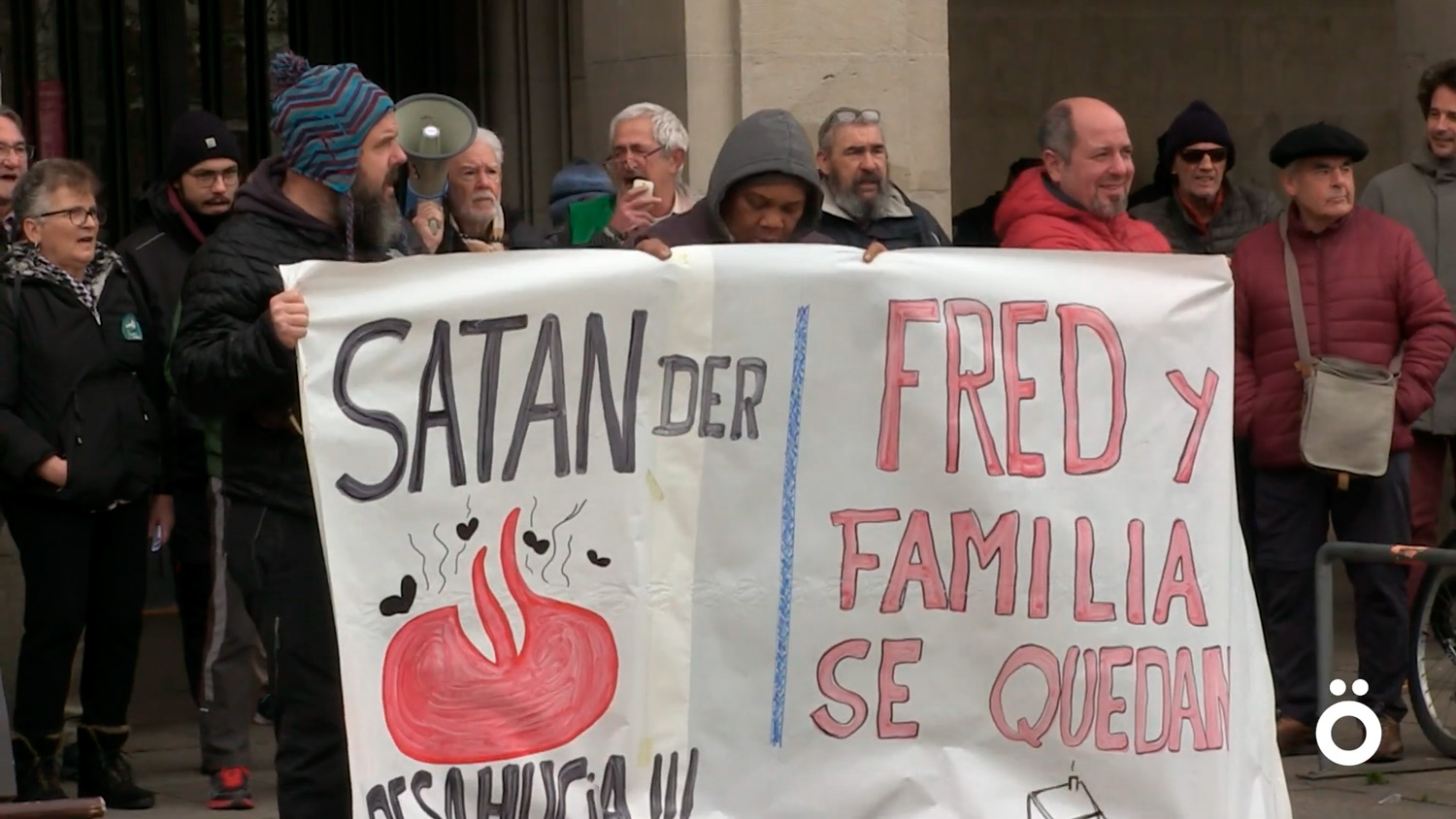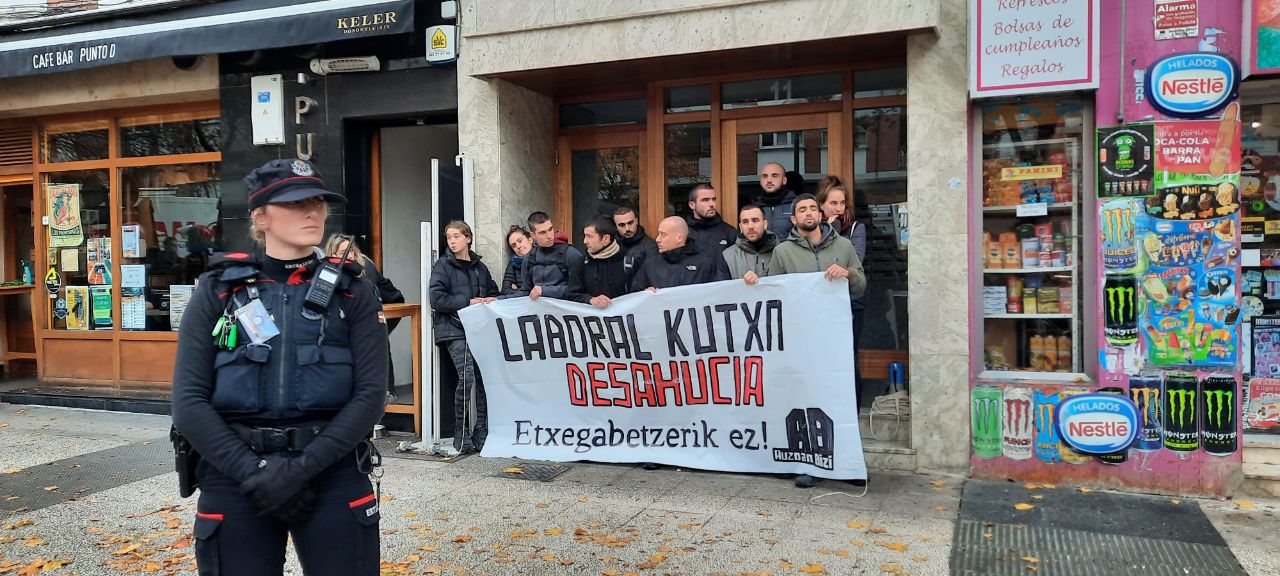Global Forum and local certificate
The second part of the theme of the summit, which was recently held in Bilbao, shows the intention and the ideological foundation of the event: Spain Global Forum: Stability to growth. The troika and the most outrageous multilateral organisations have wanted to send us the message that today’s inevitable anguish will benefit tomorrow. Bilbao has been elected by the troika and the nearby institutions (European Commission, IMF, ECB, OECD...) to apologise for economic stability and legitimise cutting policies. They have come to Bilbao to cover up the failure of adjustments at the state level of the four years and to make an embarrassing institutional marketing for them.
In any case, a very broad social and economic clamour has been made in connection with this quote. Beyond mass street appearances, there has also been a significant and novel initiative, a manifesto in favour of an economy at the service of people. What is new is that in the face of such summits it is not common from an academic point of view, let alone in the economic and business sphere. It has been significant because beyond the number of signatures – about 500, half of them EHs – the political and ideological pluralism of these university professors is also noteworthy.
The document provides many evidences of the failure of austerity policies, such as the increase in the unemployment rate at the state level, the deterioration of the quality of employment, the strong expansion of poverty and social exclusion, the greater historical increase in inequalities and also the failure of many Indians who are the excuse for cutting measures, such as the increase in public debt to 100% of GDP. All of this underlines the risk of losing the decline in democracy and any traces of the social State.
Beyond the complaint, the signatories demand an amendment to the current criteria for public intervention. The concepts of economic profitability and competitiveness cannot be considered as the ultimate objective of the economic base. Equity should, in his view, be the first reference necessary for the functioning of the economy. Because austerity policies generate extreme inequalities that, in addition to being socially unjust, also lead to a loss of economic efficiency. In addition, they have insisted that economic competition cannot prevail over the principle of economic sustainability because the future of the economy is rotten if there is no ecological efficiency. The public management of all this must be democratic and transparent, prioritizing the mechanism of citizen participation. The document calls for a review of European Union (EU) and Eurozone rules and calls for prioritisation of solidarity and cohesion criteria to bridge the gap between groups and winners and losers as a result of market logic.
The communiqué brings fresh air and destroys two myths surrounding the crisis. First of all, to consider that dealing with the crisis is a technical and economic problem. The troika believes that technical measures are sufficient to meet market demands. But the document underlines that, above technocratic reason, there are political priorities and underlines the need for a policy to design the way out of the crisis. The document also destroys a second myth that states that there is no alternative to austerity.
Ez da gauza berria politikari profesionalak gizarteko arazoak estaltzeko ahaleginetan ibiltzea. Azkenaldian Denis Itxaso -EAEko Etxebizitza sailburua- entzun dugu etxegabetzeei garrantzia kenduz eta aditzera emanez gurean bazterreko fenomenoa direla; eta Begoña Alfaro... [+]
Azora putre funts alokairua igo eta mantentze lanak alde batera utzi ditu, Isaac Lagos eta bere familia etxebizitza uztera behartuz. Kaleratzearen aldeko epai bat jaso berri du maizterrak.
Etxera itzuli ahal izan diren arren, joan den azaroan kaleratu zuten Astrabuduko familia berriz ere arriskuan dago. Uribe Kostako Etxebizitza Sindikatuak salatu du mailegu-enpresa berriz ere saiatzen ari dela kanporatzea gauzatzen, oraingoan, desokupazio-enpresa bat... [+]
Azken egunak garrantzi handikoak izan dira Bartzelonan, etxebizitzaren aldeko mugimenduarentzat eta espekulatzaileen aurkako borrokarentzat. Urtarrilaren 28an, polizia-armada batek Raval auzoko Massana Zaharrari [zentro sozial okupatua] eraso egin zion goizaldean, aurrez abisatu... [+]
























